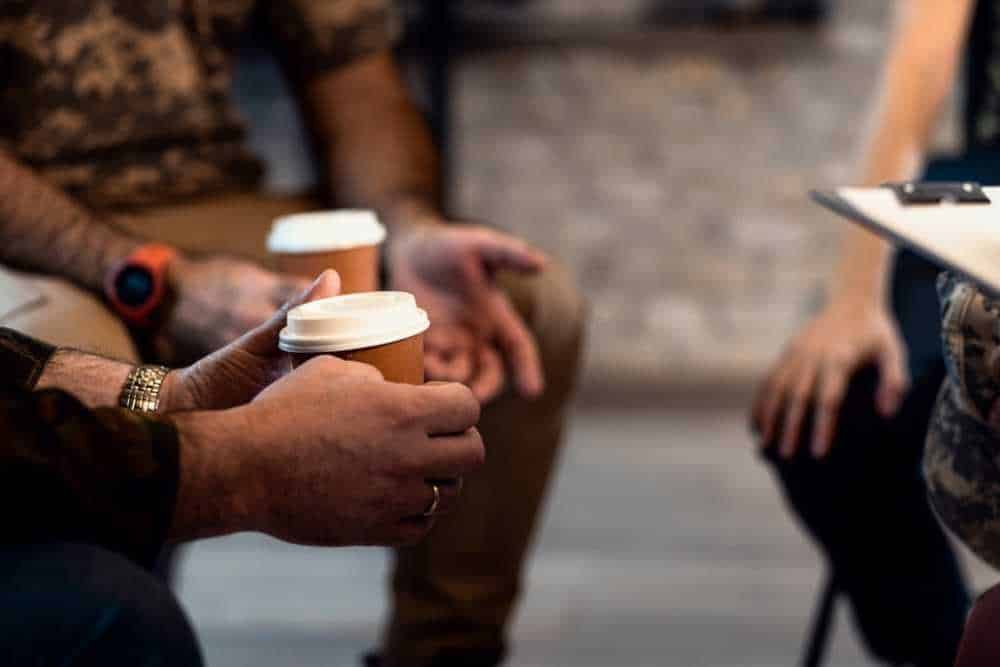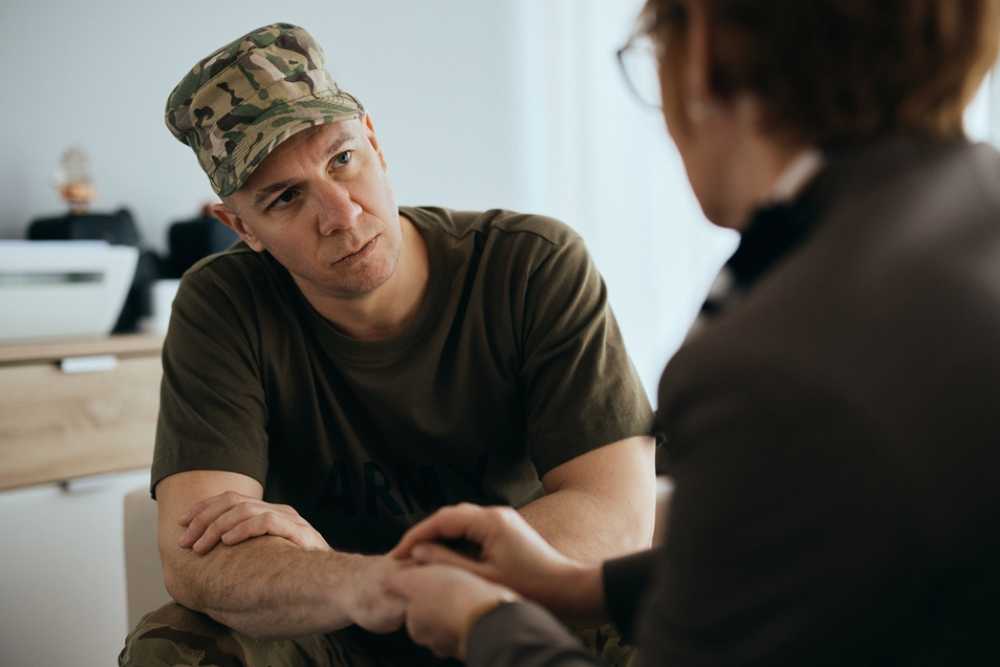Army veterans have several resources available for getting help with panic attacks through the U.S. Department of Veterans Affairs and private mental health facilities. The VA provides mental health services for anxiety and other conditions. Panic attacks Army veterans are struggling with can apply for and manage VA benefits through the VA’s mental health programs. Cognitive Behavioral Therapy (CBT) at mental health facilities in Orange County is offered as a short-term treatment that helps veterans understand their anxiety and address distressing thoughts and feelings.

Why Are Army Veterans at Higher Risk for Panic Attacks?
Army veterans face an elevated risk for panic attacks due to several interconnected factors stemming from their military service and experiences:
- Combat and Trauma Exposure: The primary driver is exposure to traumatic events during military service. Research indicates that approximately 14% to 16% of US service members deployed to Afghanistan and Iraq have been affected by PTSD or depression. Combat exposure creates lasting neurological changes that can trigger intense anxiety responses.
- PTSD Connection: The symptoms of PTSD—such as flashbacks, hypervigilance, and intrusive thoughts—can contribute to the development of panic attacks or exacerbate existing anxiety conditions. Veterans may experience extreme emotional and physical reactions to reminders of trauma, such as panic attacks, uncontrollable shaking, and heart palpitations.
- Hypervigilance and Stress Response: Military training conditions service members to maintain constant alertness to threats. While this hypervigilant state is protective in combat, it can persist after service and manifest as panic attacks when the nervous system remains in perpetual “fight or flight” mode.
- Secondary Conditions: Veterans who suffer from PTSD may also be diagnosed with secondary panic attacks, meaning the panic attacks develop as a direct result of their service-connected PTSD.
- Gender Differences: Research shows that female veterans may report panic disorder at twice the rate of men, indicating that gender plays a role in vulnerability to developing panic attacks.
- Transition Challenges: The difficulty of transitioning from military to civilian life, combined with the potential stigma around seeking mental health help in military culture, can exacerbate anxiety conditions and delay treatment.
What Triggers Panic Attacks in Army Veterans?
Army veterans experience panic attacks triggered by various stimuli that connect to their traumatic military experiences. These triggers can be sensory, environmental, or psychological:
Sensory Triggers
- Loud Noises: Loud noises are among the most common triggers for PTSD and C-PTSD flashbacks. This includes sudden sounds like backfiring cars, fireworks, helicopters, or construction noise that can instantly transport veterans back to combat situations.
- Visual Cues: For veterans with PTSD, flashbacks usually involve visual and auditory memories of combat. Seeing military vehicles, uniforms, or conflict scenes can trigger panic responses.
Environmental Triggers
- Crowds: Crowds are a common trigger because they can create feelings of being trapped or overwhelmed, similar to chaotic combat environments.
- Specific Locations: Places that resemble deployment environments, such as desert landscapes, airports, or confined spaces, can trigger panic attacks.
Emotional Triggers
- Anniversaries: Dates that mark the occurrence of traumatic events can bring about heightened symptoms. These anniversary reactions can cause severe panic attacks even years after service.
- Media Content: News reports or movies about war can trigger flashbacks or distress. Combat scenes, news coverage of conflicts, or military documentaries can be powerful triggers.
Physical Triggers
- Physical Contact: Physical contact is a common trigger, particularly unexpected touch or being in crowded situations where contact is unavoidable.
- Physical Sensations: Veterans may experience physical and emotional reactions, including panic attacks, uncontrollable shaking, and rapid heart rate, when exposed to triggers.
Triggers can vary from person to person and can even be different for the same person at different times. What triggers a panic attack in one veteran may not affect another, and triggers can change over time as veterans heal or as new stressors emerge.
Mental Health Treatment That Works
Call 949-625-0564What our customers are saying
When Should an Army Veteran Seek Help for Panic Attacks?
Army veterans should seek help for panic attacks as soon as they begin interfering with daily life, relationships, or overall well-being. If panic attacks are occurring frequently, lasting longer than expected, or creating persistent worry about when the next attack might happen, it’s time to reach out for professional support. Veterans should also seek help when panic attacks lead to avoidance behaviors, such as staying away from crowds, certain locations, or activities they once enjoyed, as this can significantly limit the quality of life and social connections.
It’s particularly important for retired service members to seek help for overcoming mental health struggles among veterans when panic attacks are accompanied by other mental health symptoms such as depression, persistent nightmares, flashbacks, or thoughts of self-harm. Veterans should never wait until panic attacks become overwhelming or unmanageable before seeking assistance.
Early intervention often leads to better outcomes and can prevent panic attacks from developing into more complex anxiety disorders or agoraphobia. The VA and other veteran-focused mental health services are specifically designed to understand the unique experiences of military service members, making professional help more accessible and relevant.
What Mental Health Services Are Available to Army Veterans?
Army veterans have access to a comprehensive range of mental health services through the Department of Veterans Affairs and other veteran-focused organizations. VA medical centers offer a full array of treatment services for PTSD, including pharmacotherapy, face-to-face mental health assessment and diagnosis, group and individual therapy, and psychotherapy.
Veterans looking for mental health treatments in California can access telehealth services, family counseling, substance abuse treatment, and alternative therapies. The VA also provides educational resources and mobile apps for mental health management. Many services are available regardless of enrollment status or disability rating, making mental health care more accessible to all veterans.

Key Takeaways on Seeking Help for Panic Attacks Army Veterans Face
- Army veterans experience panic attacks at higher rates than the general population due to combat trauma exposure, PTSD, and the lasting effects of hypervigilance training.
- Panic attack triggers for veterans typically stem from sensory reminders of combat experiences, including loud noises like backfiring cars or helicopters, and anniversary dates of traumatic events.
- Veterans should seek help as soon as panic attacks begin interfering with daily life, relationships, or work performance.
- The VA provides extensive mental health services, including specialized PTSD treatment.
- Veterans have access to proven treatments like Cognitive Behavioral Therapy (CBT) and specialized PTSD therapies that help develop coping strategies and address distressful thoughts.
Moment of Clarity provides professional outpatient mental health treatment to help overcome the panic attacks Army veterans face due to their time in the military. For help finding relief through personalized outpatient care at Moment of Clarity, call 949-625-0564 today.
Resources
- U.S. Department of Veterans Affairs – VA mental health services
- Veterans Help Group – 4 Types of Anxiety Increasingly Impacting Veterans
- HelpGuide.org – PTSD in Military Veterans




